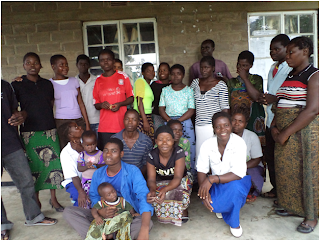By Elias Banda
A research report on small holder farmers’ perception on the ongoing Farm Input Subsidy Program (FISP) has been unveiled in Blantyre, sparking debate on whether it was necessary for the Malawi Government to continue with the program or not . The function, which took place at Ryalls Hotel, was attended by researchers, politicians, agriculture experts, lecturers and journalists. The purpose of the function was to report farmer’s perception on subsidized fertilizer program and its impact.
Speaking during opening remarks Michael Usi, ADRA Malawi Country Director said the issue of FISP emanated from community dialogue sessions in the ADRA Malawi’s Action for Social Change Program (ASC) impact areas and it further prompted for more research into the matter. For this reason, ADRA Malawi entered into partnership with the Civil Society Agriculture Network (CISANET) and Centre for Agriculture Research Development (CARD) of the Lilongwe University of Agriculture and Natural Resources (LUANAR) and commissioned them to conduct a study of FISP between August and September 2013.
 |
| Michael Usi Speaking during the function |
 |
| Participants listening to presentations and speeches |
Presenting the findings of the study, Dr Donald Makoka from LUANAR said data for the study was collected from both FISP beneficiaries and non-beneficiaries and key informants in 6 districts of Malawi of which four ; Mulanje, Mzimba, Lilongwe and Machinga were ASC impact districts and the other two were Chikwawa and Mchinji. On community perception of graduation of FISP 47% of the total sample size of 898 indicated that FISP should graduate while 53 % said FISP should not have a graduation component. On the future perception of FISP, Dr Makoka said that over 50% of the sampled FISP beneficiaries in 5 districts apart from Chikwawa, indicated that the program should phase out and the price of fertilizer be reduced. He said the average fertilizer price beneficiaries wanted to be reduced would be at K5000 (about $12.5)/50kg bag.
Nevertheless, the study found that 67% of the non-poor beneficiaries, 70% of the poor and 63% of the ultra-poor beneficiaries, all reported that the 2012/13 FISP had reduced their household food insecurity. The study also found that the majority of the sampled FISP beneficiaries still do not have harvest enough to last them the whole year. However, the FISP improved the beneficiaries’ ability to have food for about 2.6 months, from 4.5 months to 7.1 months in a year.
Dr Makoka also pointed out that the FISP program has a negative bearing on the relationships in the community. He said that 87.3% of the sampled households reported that community relationships have worsened due to FISP and the proportion was highest in Lilongwe. He said traditional leaders complained that the majority of non-beneficiaries refused to participate in community development because they were not part of the FISP program.
 |
| Dr Lipita speaking on behalf of government at the function |
Currently, the FISP Program is targeting 1.5 million farm families and a researcher Hanfrey Mdyetseni From CISANET said during his presentation that the Malawi Government spent a staggering K60 Billion (about $150, 000,000) in the 2013/2014 agriculture season and the figure represents 10% of the total national budget.
Mr Mdyetseni bemoaned the unavailability of audited report on the FISP expenditure and failure by implementers of the program to provide data on how the program has been implemented are some of the issues the general public was skeptical about.
Speaking on behalf the Malawi Government Dr Lipita, Director of Extension Services in the Ministry of Agriculture commended ADRA Malawi and partners for the research activity. He said the research findings were thought provoking and that government would look at both sides of the debate and analyze it further to come up with a conclusion. He also said that he took note of the challenges in the implementation of FISP Program.
The Action for social change program is being supported by Denmark to bring about individual and society change in Malawi.















 The training, which ran from 20 to 25th September, 2010, drew participants from ADRA Rwanda and Malawi offices and was organised with an aim of equipping the staff with skills and knowledge on how they can help communities attain their development needs and aspirations. The workshop was possible due to the DANIDA support received through ADRA Denmark.
The training, which ran from 20 to 25th September, 2010, drew participants from ADRA Rwanda and Malawi offices and was organised with an aim of equipping the staff with skills and knowledge on how they can help communities attain their development needs and aspirations. The workshop was possible due to the DANIDA support received through ADRA Denmark.









 Nasiyani is no longer seeking for company as before but rather people are seeking to befriend her so they can learn much from her.
Nasiyani is no longer seeking for company as before but rather people are seeking to befriend her so they can learn much from her.
